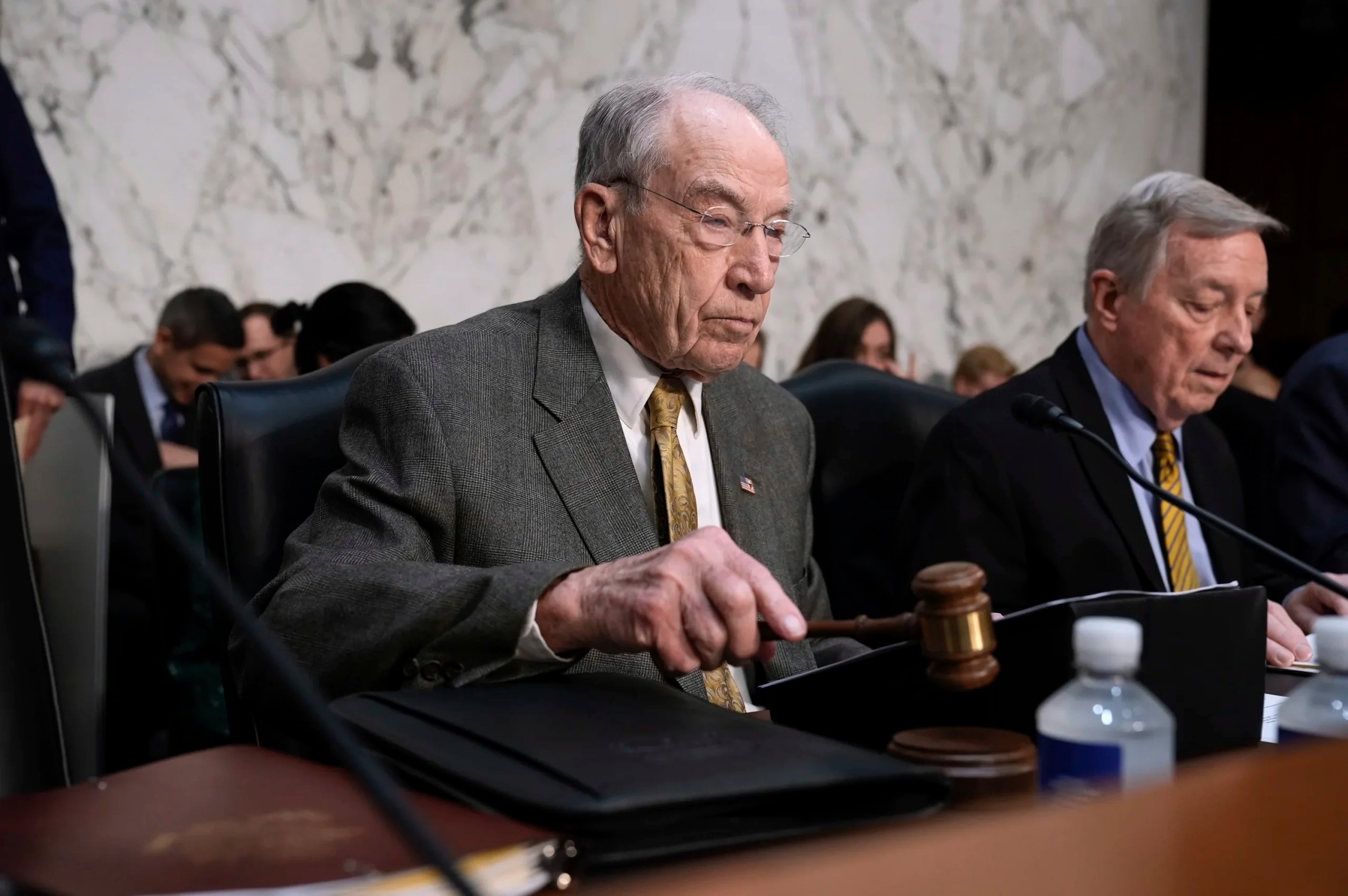


Tempers flared Tuesday on Capitol Hill as senators from both parties unleashed blistering criticism of pharmacy benefit managers, accusing them of profiteering, monopolistic practices, and systematically forcing independent pharmacies out of business.
Originally designed to help lower drug costs by negotiating discounts with manufacturers, PBMs have come under fire from lawmakers, doctors, pharmacists, and patients who argue they drive prices up by pocketing hidden rebates, steering patients to their own affiliated pharmacies, and reimbursing independent pharmacies at unsustainable rates.
Recommended Stories
- Schumer to put hold on Trump DOJ nominees over Qatari plane gift: Report
- Josh Hawley, drawing red line on Medicaid, is noncommittal on House's Trump megabill
- Senate Democrats promise to ‘take action’ over Trump accepting Qatari luxury jet
The majority of the hostility during the Senate Judiciary Committee meeting was directed at JC Scott, the president and chief executive officer of the Pharmaceutical Care Management Association, which represents America’s PBMs.
Sen. Josh Hawley (R-MO) accused Scott and the PBM industry of enriching themselves while patients go without essential medications, calling the system a “racket” and demanding Congress consider breaking up PBM-insurer-pharmacy conglomerates to restore competition and lower drug costs.
“Either you’re the worst negotiators in the history of the world, or something’s wrong with your business model,” Hawley said, referencing prices of drugs in the United States in comparison to other countries.
“Those, if I may, senator, those are comparisons of list prices, drug companies alone, as we talked about earlier, set the list price,” Scott replied. “The PBM is negotiating down the net cost.”
“The patients are getting screwed,” Hawley said. “Missourians are getting screwed. You’re getting rich. The problem is there is no competition. It’s a racket. It’s a total racket.”
Sen. Sheldon Whitehouse (D-RI) argued that while PBMs have their flaws, they remain a vital check on Big Pharma’s pricing power, and that drug companies are deflecting blame onto PBMs to avoid accountability for America’s sky-high prescription costs.
Whitehouse cited ads funded by pharmaceutical companies blaming PBMs for soaring drug costs and then sharply questioned Scott on whether drugmakers and PBMs are working together to keep prices artificially high.
TRUMP SIGNS EXECUTIVE ORDER LOWERING PRESCRIPTION DRUG PRICES
“That is not happening, and you’re pointing to the advertisements as good evidence there is no general truce,” Scott replied. “We have been calling actively for drug companies to lower their list prices on all prescription drugs. That’s a key part of what we advocate for.”
The hearing comes one day after President Donald Trump signed a broad executive order to lower Medicare drug prices using a “Most Favored Nation” policy that ties U.S. prices to those in other countries, a move likely to spark legal challenges and industry pushback. A similar effort during his first term was blocked by a federal judge in 2020 and later scrapped by the Biden administration.
